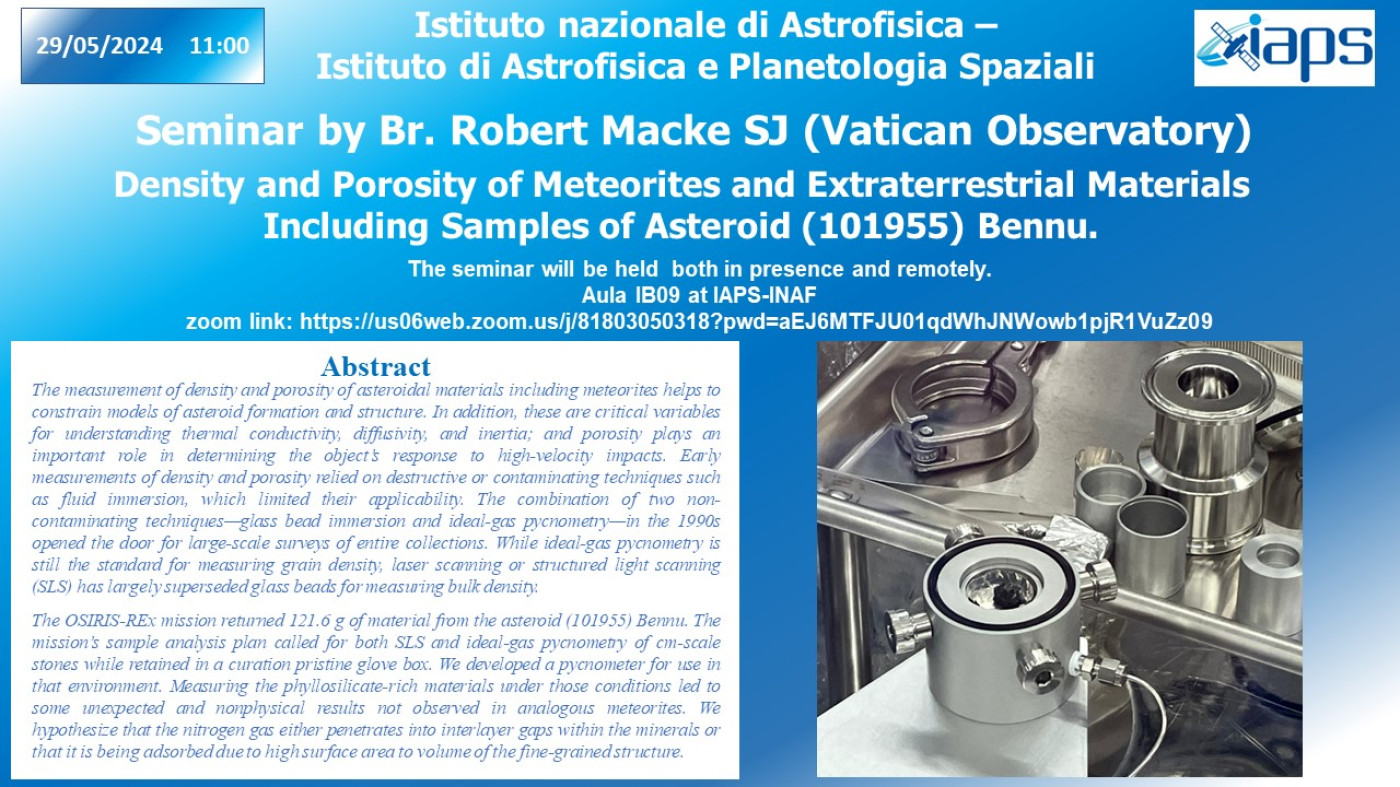Density and Porosity of Meteorites and Extraterrestrial Materials Including Samples of Asteroid (101955) Bennu.
Affiliation: Vatican Observatory

Abstract: The measurement of density and porosity of asteroidal materials including meteorites helps to constrain models of asteroid formation and structure. In addition, these are critical variables for understanding thermal conductivity, diffusivity, and inertia; and porosity plays an important role in determining the object’s response to high-velocity impacts. Early measurements of density and porosity relied on destructive or contaminating techniques such as fluid immersion, which limited their applicability. The combination of two non-contaminating techniques—glass bead immersion and ideal-gas pycnometry—in the 1990s opened the door for large-scale surveys of entire collections. While ideal-gas pycnometry is still the standard for measuring grain density, laser scanning or structured light scanning (SLS) has largely superseded glass beads for measuring bulk density.
The OSIRIS-REx mission returned 121.6 g of material from the asteroid (101955) Bennu. The mission’s sample analysis plan called for both SLS and ideal-gas pycnometry of cm-scale stones while retained in a curation pristine glove box. We developed a pycnometer for use in that environment. Measuring the phyllosilicate-rich materials under those conditions led to some unexpected and nonphysical results not observed in analogous meteorites. We hypothesize that the nitrogen gas either penetrates into interlayer gaps within the minerals or that it is being adsorbed due to high surface area to volume of the fine-grained structure.


